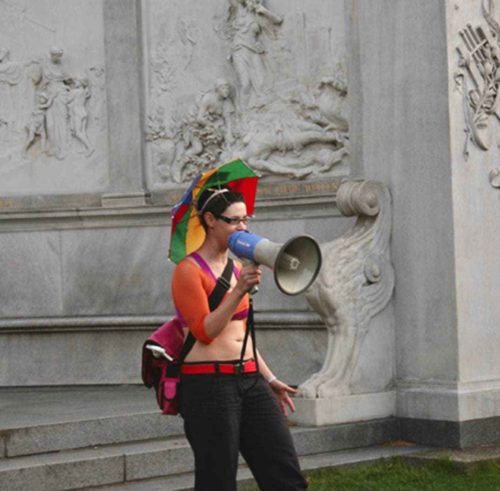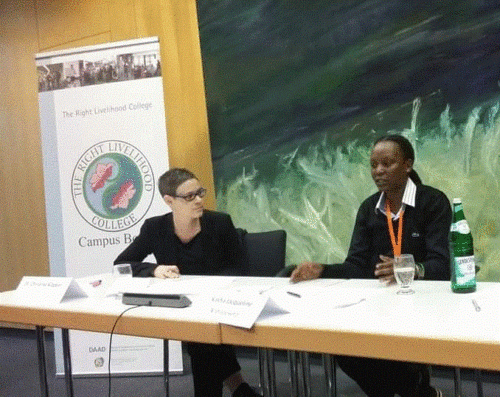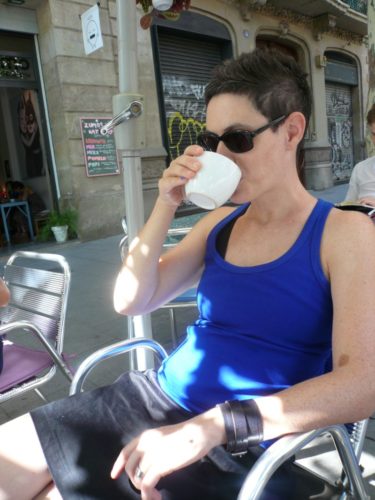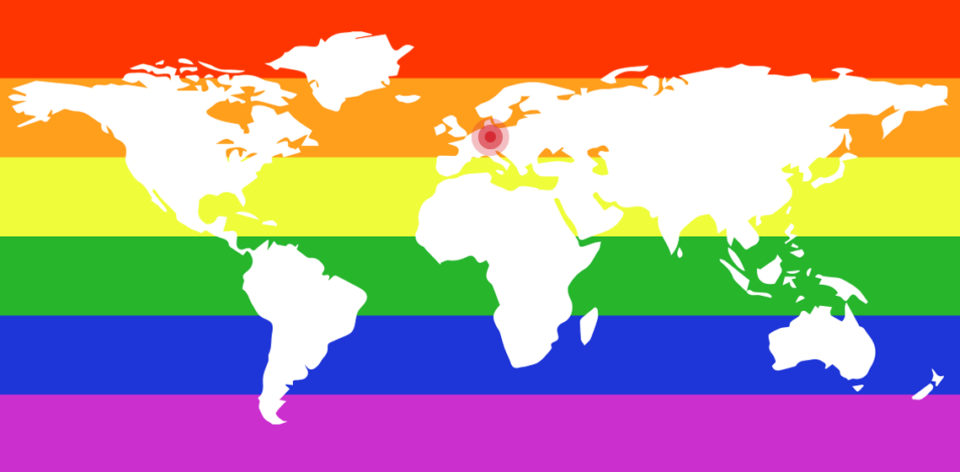This month we would like to reflect on March 8th, the international women’s day, through our interview with Chriz who talked about the diversity of LBTQ+ experiences that challenge the notions of womanhood.
Hello, Chriz! Can you introduce yourself please?
My activist name is Chriz, but in professional academic life, I am better known as Christine M. Klapeer. I currently live in Bremen, Germany, and I am normally commuting to Göttingen during the week, where I work at the University of Göttingen as a Senior Lecturer at the Gender Studies Program. I grew up in the countryside in a very conservative, abusive and Catholic environment in Austria. I think, I started at quite early stage to revolt against all the rigid and heteronormative gender norms but I only came out at around 20. During my childhood, I was very much relating to powerful women* in Christian history, especially nuns such as Hildegard von Bingen, because that was the only escape from heteronormativity and marriage I could imagine then. In my youth I found some feminist and lesbian* literature in the public library (thanks for that!!) and discovered that I don’t have to become a nun in order to become a scholar and live a life in a different kind of community. During my studies I got increasingly involved in feminist activism and also lesbian* politics and I suddenly found myself at the center of many activities. After finishing my MA I moved to Vienna (for love, sex and work), and I started to work as a volunteer for the lesbian* counseling center “Lila Tipp” at the (previously occupied) Rosa Lila Villa. What was special about our work and activism in the “Lila Tipp” was that we were promoting a queer and sex-positive lesbian* activism and that we engaged in rather joyful and “campy” protests.

What about your professional life?
My academic career as a queer and gender studies scholar is very much related to, or can’t be detached from, my years of experiences as an activist. I studied politics with a focus on gender studies and feminist theory and always tried to somehow “understand” how heteronormativity works, becomes institutionalized, and reproduced. My dissertation also explicitly deals with the complex entanglements between heteronormativity, gender and citizenship, particularly focusing on “lesbian* citizenship”. What is maybe important is that this was also the time when I more and more departed from the category of “woman”, following the works of lesbian theorist Monique Wittig. Thus, nowadays I strongly identify as a queer lesbian* femme and queer activist scholar, and I refuse and want to refuse to be and become a woman.

Very understandable. Could you help us understand the context where you are coming from? How would you summarize the situation of the LGBTQ+ community in Germany?
It is difficult to answer that question especially by taking account of the diversity of lesbians* and intersectional positionalities. I would say, the huge number of legal reforms in Germany has, of course, improved lesbian* life. It is possible to get married, there is an antidiscrimination law in place, lesbians* become more visible in TV and public media; I am an out academic who is teaching at a very established German University. In that sense, of course, Germany – at least for some lesbians* - is a good place to live.
But there is a huge BUT: I think, acceptance and normalization always comes at certain costs: Those who become “visible” are mostly white and gender-conforming lesbians* and there is an increased appellation to lesbians* to “become normal” women. This means that lesbians* are now “allowed” to have a “different sexual orientation” and maybe also to have a “family” but they should not transgress, disturb, or question heteronormativity further. This means that there is only a flexibilization of heteronormativity and we might speak of an “inclusion” of lesbians* into a system of heteronormativity as the “tolerated other”.
In Germany, there exists an ongoing, if not increasing, lesbo*phobia and harassment of lesbians*, trans* and gender-nonconforming people, promoted by the rise of right wing extremist groups and also the social “normalization” of right wing ideas among great parts of the population. What I find, therefore, particularly disturbing are the increasing anti-trans* mobilizations by lesbian-feminists in Germany. I consider myself as a queer lesbian* and to me lesbo*phobia is intrinsically linked to anti-trans*/anti-inter*violence. Lesbians* are and have been punished for “being incorrect woman”, so there is “natural” allyship between lesbians* (who are also gender-non-conforming in different ways) and the trans* and inter* movement.

Valid point! Finally, tell us about your opinion on coming out. Can you share a memorable coming out story of yours?
In my youth I thought that becoming a lesbian would be a great idea (after wanting to become a nun). But in contrast to many others, I never fell in love with my sports teacher, my best friend, or my neighbor. I was not into “women” or “femininity” (in the traditional sense). And then I went to my first lesbian* party, and there I realized the “essence” of the lesbian* community. I realized that there were, I don’t know, 20 or 30 different genders dancing and drinking and laughing, all navigating, negotiating, re-interpreting or transgressing the category of woman. And, when seeing this beautiful motorcycle leather butch at that party, I realized that one could also be a lesbian* without being a “woman-loving woman”. And I think this is one of the most important aspects of lesbian* life that often got forgotten. That lesbians* have many genders and various bodies and that is just wonderful.

